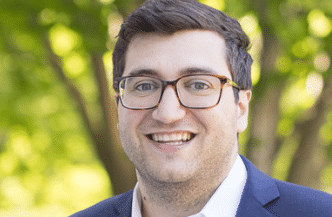My brother Jacob was born with a chronic neurological condition that caused him permanent physical and mental disabilities. As the only other child in a single parent family, I was often with Jacob during his frequent hospital stays and doctor visits. It is through this lens that I first became exposed to our healthcare system and the challenges we face as patients and caregivers in obtaining care on our terms. This drove me to address these challenges and fulfill my purpose: advocating for a more equitable, transparent and patient-centered solution for health data exchange.
It often feels that care is happening to us, not for us. For years, lawmakers and industry leaders have tried to address this by giving patients more access: to health records through EMRs and patient portals; to care delivery through telehealth; to health data through wearables and apps. The thinking is that by making the patient an active recipient in their health data, they will feel like an active participant in healthcare.
Despite these advances, more access has not resulted in patient-centered solutions and experiences. In fact, I would argue that, in many ways, the health data boom has hurt patients by putting them at the center of a maze they are not equipped to navigate, nor from which they directly benefit
Take for example the proliferation of de-identified health data. While there are now millions of patients in anonymous healthcare databases, the data is low fidelity, making it difficult for researchers to contact and invite patients to potentially life-saving clinical trials. In many cases, patient health data is taken from them, without clear, transparent and episodic consent, for use by researchers through intermediaries like DNA testing companies. While insurance companies, healthcare providers, and data brokers earn millions from selling de-identified patient data, and researchers continue to advance new treatments and diagnostics by using this data, there is no communication loop back to the patient who shares it – knowingly or unknowingly. Nor do patients earn any share of the money that’s made from the use of their data.
Still, consent is not enough; it does not create a fair, equal exchange. For every patient to benefit from an equitable and transparent health data exchange, we must let patients control and own their identifiable health data. This way researchers can easily contact patients for more information and to inform them of research opportunities.
Ownership means different things to different people but when researchers stand to gain financially from patient health data, then we must consider ownership inclusive of monetization. It’s simple: Pay people for their health data! While a novel thought, and one that makes some uncomfortable, paying people for their data is the most immediate way to create a fair and equitable exchange, the same as any other consumer marketplace. You wouldn’t sell your bicycle on Craigslist for free, so why give away your health data?
Change is afoot. I am optimistic that as we peel back the onion of what well-intentioned advances like electronic sharing of health data can do, we will design experiences that truly benefit patients by giving them ownership and control over their health data. As patients gain more ownership and control, so, too, will researchers benefit. But it’s the patient who must benefit first – otherwise there is no incentive to leave the maze.
Matt Ross is the co-founder and CEO of Trove Health, and a Blavatnik Fellow in Life Sciences Entrepreneurship at Harvard University. He was previously the Director of Business Operations at Medumo (Acquired by Philips). He received his MBA from Harvard Business School and his AB from Dartmouth College.
For more insight on health data and equity, attend SPM’s Creative Learning Exchange on June 16. Visit https://www.eventbrite.com/e/advancing-health-equity-through-participatory-medicine-tickets-594076888967 for tickets and information.







Recent Comments